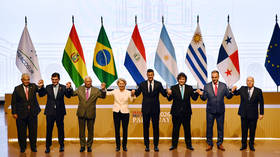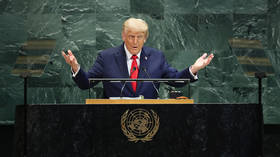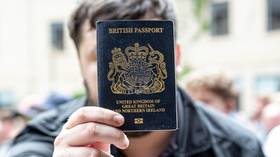100 percent in/out choice given to Greece is ‘false dilemma’ – euro architect to RT
There is a third solution in store for Greece, it could have two currencies in parallel that would stabilize the economy, Bernard Lietaer, co-designer of the European currency, told RT.
“Greece could be participant in the euro for tourism and shipping which are the largest sectors of the economy. At the same time it could have some new drachma which is playing by different rules and which is providing capacity to reanimate the economy at the grassroots level,” he said.
There have already been precedents of countries having two currencies, according to Lietaer.
For eighty years Switzerland successfully used the Swiss franc and a so-called ‘business-to-business’ currency, he said. In Great Britain, domestic companies have the right to choose whether to have balance sheets and taxes paid in pounds or euro, Lietaer added.
Speaking on Greece’s possible survival outside the eurozone, he said Iceland was a perfect example of ‘unorthodox’ crisis management. The country came out of the financial crisis of 2007-2008 by imposing strict cash flow controls, letting the banks go bankrupt and incarcerating bankers.
READ MORE: Icelandic 'banksters' get jail time over Kaupthing fraud
Without extra liquidity from the creditors, Greek banks can stay closed for a long time. Greece could default like Argentina in 2014, but an agreement still can be reached, Lieater summed up.
READ MORE: Greece closes banks, imposes capital controls
The ECB turned down a request to increase the €89 billion emergency liquidity assistance (ELA) to Greece by an additional €6 billion to tackle deposit flight. This led to Greek banks closing and the introduction of a limit on ATM withdrawals to €60 a day.
On Thursday, cash withdrawals nationwide hit €3,000 per second, while many ATMs were emptied, media reported.
Greek Prime Minister Alexis Tsipras has assured the banks would reopen on Tuesday after the referendum on creditors’ austerity measures.
Tsipras has repeatedly been saying that voting ‘No’ at the referendum doesn’t imply a Greek exit from the eurozone; it would give an opportunity for a better offer from the Troika.












